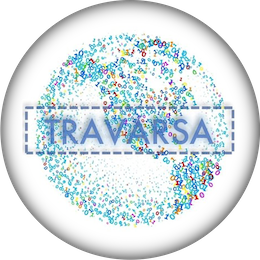Unlock the power of Marketing Automation with Machine Learning. Elevate your strategies, engage....
Read MoreHow to start your career in the field of Data Science?

Stepping into the realm of data science is akin to entering a world where every dataset holds the potential for discovery and transformation. The first stages of this journey involve establishing a sturdy foundation in mathematics, statistics, and programming languages like Python or R. As we traverse through the realms of data analysis, database management, and advanced analytics, each step unfolds a new facet of expertise essential for roles ranging from meticulous Data Analysts to innovative Data Scientists and insightful Data Researchers.
The tools and techniques learned along this path empower individuals to extract meaningful insights from data, uncover patterns, and contribute to the ever-expanding field of data science.
Data Science, an Introduction
In the age of information, where data serves as the backbone of decision-making across industries, a career in data science has become synonymous with unlocking insights and driving innovation. Whether aspiring to become a Data Analyst, Data Scientist, or Data Researcher, the journey into this dynamic field requires a strategic roadmap. This comprehensive guide unravels the intricate layers of skills and knowledge necessary to embark on a fulfilling career in data science, providing a step-by-step flowchart for navigating through the diverse roles and responsibilities within this data-driven landscape.
How to start your career in the field of Data Science?
A detailed step-by-step flowchart for starting a career in data science with roles such as Data Analyst, Data Scientist, and Data Research involves several stages. Here’s a comprehensive breakdown:
Step 1: Establish a Strong Foundation
- Mathematics and Statistics:
Learn Basic Statistics: Understand concepts like mean, median, and standard deviation.
Calculus and Linear Algebra: Grasp fundamental mathematical concepts. - Programming Language:
Python or R: Master a programming language commonly used in data science.
Step 2: Data Analysis Skills
- Data Wrangling:
Pandas and NumPy: Learn libraries for data manipulation in Python.
Data Cleaning Techniques: Understand methods to handle missing data and outliers. - Data Visualization:
Matplotlib and Seaborn: Master visualization libraries in Python.
Dashboard Tools: Explore tools like Tableau for interactive dashboards.
Step 3: Database Management
- SQL (Structured Query Language):
Database Concepts: Understand relational databases.
SQL Queries: Learn to retrieve and manipulate data.
Step 4: Advanced Analytics and Machine Learning
- Machine Learning Basics:
Supervised and Unsupervised Learning: Understand the fundamentals.
Scikit-Learn and TensorFlow: Learn popular libraries. - Model Evaluation and Optimization:
Cross-validation: Understand model performance.
Hyperparameter Tuning: Optimize model parameters.
Step 5: Specialization – Data Analyst, Scientist, or Researcher
- Data Analyst:
Business Intelligence Tools: Explore tools like Power BI.
Statistical Analysis: Apply statistical methods for business insights. - Data Scientist:
Advanced Machine Learning: Dive deeper into complex algorithms.
Big Data Technologies: Learn tools like Apache Spark. - Data Researcher:
Advanced Statistical Analysis: Explore advanced statistical methods.
Research Methodologies: Understand research design and implementation.
Step 6: Real-world Projects and Portfolios
- Project Implementation:
Build End-to-End Projects: Apply knowledge to real-world scenarios.
GitHub: Showcase projects in a portfolio.
Step 7: Continuous Learning and Specialization
- Stay Updated:
Follow Industry Trends: Keep abreast of the latest technologies. - Online Courses and Workshops: Enroll in courses for continuous learning.
Networking and Professional Development: - Join Data Science Communities: Engage with professionals.
Attend Conferences and Meetups: Network with experts.
Step 8: Advanced Degrees and Certifications
- Consider Higher Education:
Master’s or Ph.D. in Data Science: Advance your academic qualifications. - Professional Certifications: Obtain relevant certifications in specific areas.
Step 9: Career Transition and Job Search Strategies
- Build a Strong Resume and LinkedIn Profile:
Highlight Skills and Achievements: Showcase expertise and projects. - Networking: Leverage professional connections for job opportunities.
- Job Applications and Interviews: Prepare for Technical Interviews: Be ready for coding and analytical assessments.
- Soft Skills: Enhance communication and teamwork skills.
By following this detailed flowchart, aspiring data professionals can systematically build a strong foundation and progress toward mastering the diverse skills required for roles such as Data Analyst, Data Scientist, and Data Researcher. Continuous learning, hands-on projects, and engagement with the data science community are key elements for success in this rapidly evolving field.
Recommended Certifications in the field of Data Science
Here’s a list of recommended certifications for individuals pursuing a career in data science, covering roles such as Data Analyst, Data Scientist, and Data Researcher:
Foundational Certifications:
- Data Science MicroMasters Program (edX/MIT):
Comprehensive program covering fundamental concepts in data science. - IBM Data Science Professional Certificate (Coursera):
Offers hands-on experience with tools like Jupyter notebooks and RStudio. - Google Data Analytics Professional Certificate )
Focuses on practical data analysis skills using Google Analytics and other tools.
Data Analysis Certifications:
- Microsoft Certified: Data Analyst Associate:
Validates skills in Power BI and data analysis with Microsoft tools. - Certified Analytics Professional (CAP):
General analytics certification covering various analytics domains.
Machine Learning and Data Science Certifications:
- AWS Certified Machine Learning – Specialty:
Focuses on machine learning on the AWS platform. - Certified Data Science Professional (CDSP):
Covers a broad range of data science concepts and tools. - SAS Certified Data Scientist:
Validates skills in advanced analytics using SAS tools.
Big Data and Database Certifications:
- Cloudera Certified Data Analyst:
Focuses on data analysis within the Hadoop ecosystem. - Microsoft Certified: Azure Data Scientist Associate:
Validates skills in implementing and running machine learning workloads on Azure. - MongoDB Certified Database Administrator:
For those interested in NoSQL databases, particularly MongoDB.
Advanced Analytics and Research Certifications:
- Certified Analytics and Insights Professional (CAIP):
Focuses on analytics and insights, suitable for research-oriented roles. - Certified Information Management Professional (CIMP):
Covers various aspects of information management, beneficial for researchers.
Specialized Certifications:
- Certified Fraud Examiner (CFE):
For those interested in the analytics and investigation of fraud. - Tableau Desktop Specialist:
Validates skills in using Tableau for data visualization.
Statistical Analysis Certifications:
- Statistics.com Certifications:
Offers various certifications in statistical analysis and data science. - Google Professional Certificate in Data Engineering (Coursera):
Focuses on data engineering skills for processing and analyzing big data.
Research Methodology Certifications:
- Research Methods Specialist Certification (RMC):
Focuses on research methodologies and practices. - Certified Research Professional (CRP):
Covers various aspects of the research process.
These certifications cater to different aspects of data science, ensuring a well-rounded skill set for various roles within the field. Choose certifications based on your career goals, the tools you plan to use, and the specific areas of data science that align with your interests.
Conclusion:
As we conclude this comprehensive guide, it’s vital to recognize that the journey into data science is not a mere career choice; it’s an expedition into the heart of information, where each dataset tells a story waiting to be explored. Armed with a diverse skill set, real-world projects, and a commitment to continuous learning, you’re poised to make significant contributions in the data-driven landscape. Whether you choose the path of a meticulous Data Analyst, an innovative Data Scientist, or a curious Data Researcher, the impact of your work has the potential to shape industries and drive positive change. Embrace the evolving nature of data science, stay curious, and let your journey in this dynamic field unfold with endless possibilities.
Getting Started with Microsoft Fabric
Unlock the power of Marketing Automation with Machine Learning. Elevate your strategies, engage....
Read MoreHow to start your career in Digital Marketing ?
Launch your Digital Marketing Executive career with our guide. From fundamentals to certifications,....
Read MoreTop 10 Cyber Security Threats Prevention strategies and solutions
Arm yourself with insights! Explore top 10 cyber threats and fortify your digital....
Read MoreMulti-channel Marketing Orchestration and Attribution Modeling
Unlock the power of multi-channel marketing orchestration and attribution modeling. Learn to streamline....
Read MoreIntroduction to Backend Web Development
Explore the world of backend development and its core components – servers, databases,....
Read More





